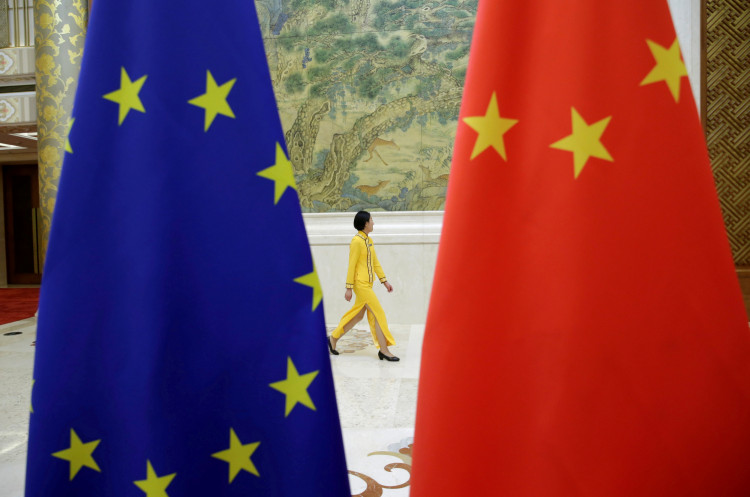As electric vehicle (EV) competition heats up globally, trade tensions between China and the European Union have escalated. This week, the conflict took a new turn as China filed a complaint with the World Trade Organization (WTO) over Europe's recent imposition of tariffs on Chinese electric cars. Beijing, which contends the tariffs lack a "factual and legal basis," argues they violate WTO rules. The tariffs, approved in October and implemented last week, target Chinese automakers like BYD and impose rates as high as 45.3% on certain vehicles.
The European Union, however, is standing firm. European Commission officials remain confident that the tariffs align with WTO regulations and argue that they are essential to ensuring fair competition in a sector rapidly shifting toward electric vehicles. The EU's stance is aimed at protecting European automakers as they work to compete with Chinese brands that benefit from substantial domestic subsidies. EU Trade Commissioner nominee Maros Sefcovic emphasized that any potential pricing agreement with China must be "as effective and enforceable" as the new tariffs, underscoring Europe's resolve in the matter.
The tariff dispute traces back to the EU's anti-subsidy investigation into Chinese EV imports, which began in response to European automakers' concerns about China's ability to produce low-cost EVs, thereby undercutting European competitors. This investigation, launched last year, culminated in October's decision to apply punitive tariffs on imported Chinese EVs. As a result, BYD, a leading Chinese EV producer, faces a levy of 17%, while other automakers, including emerging brands expanding rapidly in Europe, face tariffs up to 35.3% on top of an existing 10% import duty.
Beijing's response has not been limited to legal channels. In recent months, China has also initiated its own trade probes into European exports, including brandy, dairy, and pork, raising concerns in Europe about potential retaliatory measures. During a recent meeting in Shanghai with French trade official Sophie Primas, Chinese Commerce Minister Wang Wentao expressed hopes that France could mediate the issue with the EU. "China urges France to play an active role in promoting a solution acceptable to both Chinese and European industries," Wang told Primas, highlighting that the EU's actions have "seriously hindered" collaboration in the EV sector.
France's response has been guarded. Primas noted that, while the EU remains committed to trade with China, it would not "yield to pressure on essential points," underscoring that Europe's stance is about maintaining fair competition. In a statement following the meeting, she said, "We will continue to defend fairer competition that benefits everyone." The French delegation was also in China to address Beijing's recent tariff on European brandy, which Paris has criticized as politically motivated.
The escalating tensions have significant implications for European automakers. German car giants Volkswagen, BMW, and Mercedes, which have substantial operations in China, face increasing pressure from local competitors. Chinese brands such as Xpeng, NIO, and BYD are leveraging their competitive pricing and technological advancements to capture more of the domestic EV market, leaving European companies struggling to retain market share. Despite the tariffs, Chinese automakers are expanding into Europe, with plans for new factories in Hungary and Turkey. This continued expansion highlights China's commitment to building a foothold in the European market, regardless of trade obstacles.
The high-stakes battle has drawn attention from regulators, trade experts, and market analysts. Some have warned that if China retaliates with broader restrictions on European automakers in its market, European car companies could face challenges in one of their largest markets. Sefcovic's remarks on Monday reflected the EU's focus on establishing enforceable measures. "What is very important for us is that even if you go for price undertakings, they have to be equally effective and enforceable as the import duties we introduced," he told a European Parliament committee, stressing that fair enforcement remains a priority.
Meanwhile, Beijing insists that its investigations into European imports align with WTO guidelines and asserts that the EU acted "rashly" in launching its anti-subsidy investigation into Chinese EVs. Wang, in his remarks, claimed that China's recent trade actions were initiated in response to applications from domestic industries and adhered to WTO regulations. He added, however, that China was willing to work toward a "proper solution" with the EU.
China's WTO complaint is expected to lead to consultations between the two trade powers, marking the latest step in a complex legal and economic conflict. Both sides have acknowledged the need for dialogue, yet the dispute reflects the broader shift in global trade dynamics as major economies increasingly prioritize their own industries and navigate a changing energy landscape.






